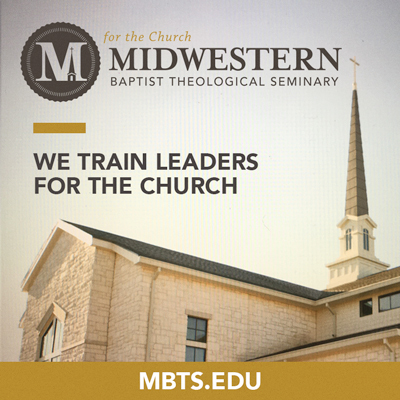Thom S. Rainer's Blog, page 121
May 20, 2019
Seven Considerations for the Church Leader Who Receives an Anonymous Letter

On occasion a church leader at Church Answers will share with the community that he or she received an anonymous letter. The leaders are inevitably hurt, and they are frustrated because they have no way to respond.
Over the years, I have seen a common theme with anonymous letters. I can best delineate it as seven considerations.
Most all church leaders will eventually receive an anonymous letter. It goes with the job and the ministry role. Even though it does not take away the sting of the letter, knowing others have gone through it makes it more bearable.
The typical content of an anonymous letter reflects a hurt or mad church member who has unmet and/or unrealistic expectations. Some church members have weird ideas about what church should be like and how church leaders should act. The cowardly church members will express their frustrations anonymously.
The toss-it principle is still good counsel. It has been common for church leaders to dispose of anonymous letters as soon as possible. Some pastors and leaders have an assistant who reads letters that come to the office. That assistant may be instructed to dispose of anonymous letters before the church leader ever sees it.
The best way church leaders handle anonymous letters is to pray for their own hearts. These evil letters can be an incredible source of distraction and discouragement. The pastor or other church leader must pray for his or her own heart. God can certainly handle the situations we think are nearly impossible to handle, such as dealing with the pain of these letters.
Many church leaders make a point to pray for the author of the letter. It’s hard to stay mad at someone if you are praying for them, even if you do not know them. Though their actions are cowardly, they are obviously people who are hurting, angry, and disappointed. They need prayer.
Where possible, some church leaders are making it known that anonymous letters never get to them. This communication can be tricky. If done in a corporate worship setting, it can distract from the act of worship. It can also be seen as petty or vindictive. But a number of pastors have found ways to get the word out they never see the letters. That usually stops future letters written in anonymity.
Healthy leaders move on quickly after they get an anonymous letter. They know it will hurt them and their ministry if they dwell on it. The best way to move on is to focus on the ministry God has given them and forget about a letter where you can’t respond.
Anonymous letters are common. Anonymous letters are painful. Healthy church leaders deal with the pain (if they see the letter), and then they move on.
There is simply too much good work to do for God’s congregation to be distracted or discouraged too long from such a cowardly act.
May 19, 2019
Pray for Union Grove Christian Church

Location: Asheboro, North Carolina
Pastor: Scott Kidd
Weekly Worship: 11:00 AM, Eastern
Fast Facts: Union Grove Christian Church is an independent Christian church set in a rural farm community that has its roots in community and family ministries. Please pray for the church to develop a passion for the lost and that God would bless them with spiritually equipped leaders in administration, music/worship, and discipleship training. Also, pray that they may be obedient in serving the Lord and that the church continues to seek to reach the lost and minister to the community. Please pray for a revival in their men’s ministry, for the church to be equipped with administration and giftedness in the area of music and student ministry, and for the pastor and church leaders to seek the Holy Spirit’s will for the people and church.
Website: UnionGroveChristianChurch.org
“Pray for . . .” is the Sunday blog series at ThomRainer.com. We encourage you to pray for these churches noted every Sunday. Please feel free to comment that you are praying as well.
If you would like to have your church featured in the “Pray for…” series, fill out this information form..
May 18, 2019
Notable Voices and the Week in Review: May 18, 2019

From Around the Web:
4 Questions to Ask the Pastoral Search Team — If You Dare — Jared Wilson
There are questions every pastoral candidate ought to ask a search committee or hiring team when evaluating possible relocation, and then there are the questions every pastoral candidate ought to really ask.
14 Non-Traditional Classes Your Church Should Consider — Facts & Trends
While most churches will want to continue their Bible study options during primary small group times, some may seek to take advantage of increased flexibility to offer something else during other times.
Learning to Choose Conformability Over Comfortability — Gary Moritz
I have learned one thing throughout the years working in local church ministry. God does not call us to be comfortable. Instead, He calls us to be conformable, which can be the direct opposite of comfortable.
8 Reasons It’s Increasingly Difficult to Raise Pastor’s Kids Today — Chuck Lawless
Pam and I are not parents, so I’m always hesitant to write about parenting. Nevertheless, I want you to know what I hear anecdotally about the difficulty of raising PK’s today. At the end of this post, though, I’m also asking pastors to let us know what’s worked well as they’ve parented their kids.
This Week at ThomRainer.com:

Seven Consequences for the Church Staff When a Pastor Leaves
Many church members do not fully grasp how disruptive a pastor’s departure is to the remaining staff. The staff are left behind, even if it’s not in an eschatological sense…READ MORE
Why Some Church Members Don’t Want Their Church to Grow
Loss of familiarity.
Loss of memories.
Loss of comfort.
Loss of power.
Loss of perceived intimacy.
Loss of worship style.
Loss of worship time.
Hiring Several Part-time Staff Rather Than One Full-time Staffer
by Thom Rainer and Jonathan Howe | Rainer on Leadership
http://media.blubrry.com/thomrainer/s3.amazonaws.com/rainerpodcast/Rainer-on-Leadership/Episode536.mp3
New Patterns in Ministry Training
by Thom Rainer and Jonathan Howe | Rainer on Leadership
http://media.blubrry.com/thomrainer/s3.amazonaws.com/rainerpodcast/Rainer-on-Leadership/Episode537.mp3
The One Major Unspoken Barrier to Revitalization
by Thom Rainer and Jonathan Howe | Revitalize & Replant
http://media.blubrry.com/revitalizereplant/s3.amazonaws.com/rainerpodcast/Revitalize-and-Replant/RR-Episode093.mp3
May 17, 2019
New Patterns in Ministry Training – Rainer on Leadership #537

Podcast Episode #537
SUBSCRIBE:
iTunes • RSS • Stitcher • TuneIn Radio • Google Play • iHeart Radio • Spotify
How ministers are trained has radically changed over the past few decades thanks mainly to the rise of digital training. Today, we discuss these changes and where they might be headed.
Some highlights from today’s episode include:
The pace of change in the church is faster than it’s ever been.
Online degrees are great for convenience, but you typically don’t build the relationships with students or professors like you would an on-campus degree.
Co-vocational ministry jobs are increasing as ministers want to keep their presence in the business world because of the ministry opportunities it presents.
Music ministry, student ministry, and children’s ministry have radically changed in the past two decades.
The seven patterns we discuss are:
The digital trend is not slowing
Degrees are becoming shorter
Positive reports on the blended approach
Full-time on campus has advantages
Certification as an alternative to degrees
Training must meet the needs of the growing co-vocational numbers
Shortages in key positions due to lack of ministry training in those areas
Resources mentioned in today’s podcast
Church Answers
Church Answers Cohorts
Church Consultation University
Interim Pastor University
Rainer on Leadership is a member of the LifeWay Leadership Podcast Network
Episode Sponsors
 Today’s episode is sponsored by Midwestern Baptist Theological Seminary. Midwestern offers more than 25 degrees at both undergraduate and masters level that are fully attainable online. From Business to Bible, Counseling to Christian education, prepare for your future at your own pace and in your own location.
Today’s episode is sponsored by Midwestern Baptist Theological Seminary. Midwestern offers more than 25 degrees at both undergraduate and masters level that are fully attainable online. From Business to Bible, Counseling to Christian education, prepare for your future at your own pace and in your own location.
Find out more at mbts.edu/online.
 Vanderbloemen has 12 Vanderbloemen Differences that allow them to serve their clients better than anyone else. One of those is Theology Matters. Vanderbloemen’s staff has more seminary and theological experience than any other search firm with 250+ collective years of church leadership experience.
Vanderbloemen has 12 Vanderbloemen Differences that allow them to serve their clients better than anyone else. One of those is Theology Matters. Vanderbloemen’s staff has more seminary and theological experience than any other search firm with 250+ collective years of church leadership experience.
To learn more about all 12 of Vanderbloemen’s Differences, visit VanderDifference.com.
Feedback
If you have a question you would like answered on the show, fill out the form on the podcast page here at ThomRainer.com. If we use your question, you’ll receive a free copy of Becoming a Welcoming Church.
May 16, 2019
The One Major Unspoken Barrier to Revitalization – Revitalize & Replant #093

SUBSCRIBE TODAY:
iTunes • RSS • Stitcher • TuneIn Radio • Google Play • Spotify
Revitalization won’t happen in a church that doesn’t put forth the effort. Today, we discuss why some churches actually don’t try to revitalize.
Episode Highlights:
There are two types of job coasting: laziness and avoidance.
Sometimes churches don’t think they need to revitalize because they compare themselves to other churches instead of realizing what they should be.
For churches needing major revitalization, often the pastor then end up hiring is not the pastor they actually need.
Most pastors don’t want to see their church die. Those who do need to check their own spiritual condition.
The points we discuss are:
Simply stated, neither the members nor the pastor want to put forth the effort.
Members are intensely change resistant.
Some pastors have been burned.
Some pastors are coasting.
Common attitude #1: “Things are really not that bad.”
Common attitude #2: “We will get the right pastor in time.”
Common attitude #3: “We would rather die than change.”
Almost all of the churches, if they seek help at all, wait too long.
Resources mentioned in this episode include:
RevitalizeBundle.com
ChurchAnswers.com
Find more resources at the Revitalize & Replant page at ThomRainer.com

Revitalize & Replant is sponsored by the North American Mission Board and ChurchReplanters.com. More than 10% of churches in North America are at risk of closing and the North American Mission Board is committed to reversing this trend by decreasing the death rate of existing churches while simultaneously increasing the birth rate of new churches. To learn more about what it means to become a replanting pastor or to explore resources for replanting and revitalization in your own church, visit ChurchReplanters.com.
Submit Your Question:
Do you have a question about church revitalization or replanting for us to use on the podcast? Visit the podcast page to submit your question. If we use it on the show, you’ll get a copy of Autopsy of a Deceased Church and Reclaiming Glory.
May 15, 2019
Why Some Church Members Don’t Want Their Church to Grow

Why Some Church Members Don’t Want Their Church to Grow
Loss of familiarity.
Loss of memories.
Loss of comfort.
Loss of power.
Loss of perceived intimacy.
Loss of worship style.
Loss of worship time.
Some highlights from today’s Rainer Report:
Typically, people who don’t want their church to grow are not leading in a Great Commission fashion.
When a church grows, it becomes something it wasn’t before, and some members experience discomfort.
If your church experiences growth, expect some of the legacy members to complain about the growth.
Routine is a comforting thing to many church members. When their routine changes, they typically don’t like it.
May 14, 2019
Hiring Several Part-time Staff Rather Than One Full-time Staffer – Rainer on Leadership #536

Podcast Episode #536
SUBSCRIBE:
iTunes • RSS • Stitcher • TuneIn Radio • Google Play • iHeart Radio • Spotify
The way churches hire staff is changing. Today we begin a three-part series on emerging trends in the church with a discussion on church staffing.
Some highlights from today’s episode include:
When you have a staff opening in the church, always evaluate the role and the needs of the church before making a hire for that same position. Things may need to change.
Always give clarity to a role when you create a new position on staff.
You don’t really know someone until you work with them or marry them.
One of the primary roles of the church is to call out the called.
The seven points we discuss are:
An example of the trend
Most of the the staff come from within the church
Common commitment is 10 hours a week
One-year commitments are common
Able to see giftedness and talent first hand
Training and education are widely available
Able to determine the efficacy of a ministry
Resources mentioned in today’s podcast
Church Answers
Church Answers Cohorts
Rainer on Leadership is a member of the LifeWay Leadership Podcast Network
Episode Sponsors
 Vanderbloemen has been serving churches for nine years, but did you know that Vanderbloemen also serves Christian schools, nonprofits, and Christian businesses? So if you’re listening, and you know a Christian school, nonprofit, or values-based business that is hiring, contact our friends at Vanderbloemen for your staffing needs.
Vanderbloemen has been serving churches for nine years, but did you know that Vanderbloemen also serves Christian schools, nonprofits, and Christian businesses? So if you’re listening, and you know a Christian school, nonprofit, or values-based business that is hiring, contact our friends at Vanderbloemen for your staffing needs.
For more information, visit Vanderbloemen.com.
 Today’s episode is sponsored by Midwestern Baptist Theological Seminary. Be sure to check out Midwestern’s Doctorate of Ministry Degree. The D.Min. is an advanced degree preparing students for leadership in local churches and denominational service. It is also fully attainable in hybrid format which means you don’t have to move to pursue the degree.
Today’s episode is sponsored by Midwestern Baptist Theological Seminary. Be sure to check out Midwestern’s Doctorate of Ministry Degree. The D.Min. is an advanced degree preparing students for leadership in local churches and denominational service. It is also fully attainable in hybrid format which means you don’t have to move to pursue the degree.
Find out more at mbts.edu/dmin.
Feedback
If you have a question you would like answered on the show, fill out the form on the podcast page here at ThomRainer.com. If we use your question, you’ll receive a free copy of Scrappy Church.
May 13, 2019
Seven Consequences for the Church Staff When a Pastor Leaves

About once a month, I am contacted by a person serving on a church staff voicing a similar concern. The pastor has retired, resigned, or been fired. A new pastor will be coming at some point in the future. Life has changed for the staff member with one announcement by the pastor. As an executive pastor recently asked me, “Where do I go from here?”
The question is legitimate. Many church members do not fully grasp how disruptive a pastor’s departure is to the remaining staff. The staff are left behind, even if it’s not in an eschatological sense. Look at some of the possible consequences for church staff.
The staff member and his or her family’s life is disrupted. This consequence is almost universal. It is not just the staff member. The family is uncertain where the next job, town, school, or income will be.
The staff member may be terminated. It is not that common anymore, but some churches “clean house” so the next pastor can choose the staff. Some ask for a written letter of resignation that can be accepted or rejected by the next pastor.
Those closest to the pastor are most vulnerable. It can be rewarding for a staff member to have a close working relationship with the pastor . . . until the pastor leaves. The closest staff members have their ministry identity tied closely to the exiting pastor. And that can be a threat if the next pastor is uncertain where loyalties lie.
The on-boarding of the new pastor is fraught with tension for the staff members. They, in many aspects, have to prove themselves worthy to the new pastor. “I felt like I was having to prove my value for over six months,” a student pastor told us.
The staff have to adjust to a new culture even if they are allowed to stay. Of course, this adjustment applies to the entire congregation, but the staff members live in that culture every day of the week. The adjustment can be uncomfortable and tense.
The staff members may have to live in two worlds for a season. They may stay at the church, but they have to keep their eyes and ears open for new jobs and ministry opportunities. And they remain in both worlds until they leave or have a high level of security with the new pastor.
Some staff members may have to change their job responsibilities significantly. Even if they do get to stay, it is not unusual for the new pastor to change ministry responsibilities. Some of the changes can be dramatic, so much so that the staff member may have a totally different job.
I don’t expect to change the reality of these challenges with this article. It is my prayer, however, that this post will provide a greater awareness of the issues with the congregation. And it is my prayer that church members will have greater compassion and concern for the church staff members as a result of their heightened awareness.
After all, church staff are people too.
May 12, 2019
Pray for Friendship Community Baptist

Location: Dunkirk, Maryland
Pastor: Robert Kendall
Weekly Worship: 9:00 and 10:30 AM, Eastern
Fast Facts: Friendship Community Baptist is a 40-year-old church running about 200 each Sunday in the middle of rural southern Maryland. The church is on the border of two counties, and within 10 miles of the church are around 60,000 unchurched people. Please pray for Friendship Community as they aim to reach those with the gospel. They also use construction ministry for outreach and recently repaired five homes of people in their area. The church is also heavily involved in collecting OCC shoeboxes. Last year they collected 3,068, and this year’s goal is 6,000.
Website: FCBC.church
“Pray for . . .” is the Sunday blog series at ThomRainer.com. We encourage you to pray for these churches noted every Sunday. Please feel free to comment that you are praying as well.
If you would like to have your church featured in the “Pray for…” series, fill out this information form..
May 11, 2019
Notable Voices and the Week in Review: May 11, 2019

From Around the Web:
God Sent Jonah to Nineveh—Where’s He Sending You? — Micah Fries
We are the followers of Christ. We love him and we have been loved by him. We believe that everyone needs Jesus, but do we believe that everyone needs grace? If God called us to go to those who we fear the most; the terrorists, the religious extremists, and so on, can we do it? Or are we functionally willing to deny the Great Commission because we prefer to receive grace even while we refuse to extend it?
4 Keys to Conquering the Sneaky Enemy of Your Ministry — Kevin Peck
The enemy is distraction. Plain, simple, run-of-the-mill distraction. However, when you consider the importance of our mission and the brevity of our lives, this fight against distraction proves to be a paramount battle. It’s one we must win.
8 Books Someone Should Write for Pastors — Chuck Lawless
A few years ago, I wrote a post entitled, “12 Books I Could Write for Pastors”—which was essentially a list of things I’ve learned as a pastor. Today, I’m thinking about other books I wish someone would write for pastors. Maybe you’d like to see these books, too:
God Does Wonders With Average People — Thor Madsen
I hope that my students never figure out how to study for a C’s worth only. I hope they aim as high as possible, even if some of them miss more often than not. At the same time, I hope that their ‘downs’ teach them lessons that their ‘ups’ never could. God can do wonders with average material, if we let him; but first, we need the right kinds of experiences to show us what we can and cannot do.
This Week at ThomRainer.com:

Seven Most Common Questions about Revitalization
We are totally committed to helping churches revitalize. Through our two organizations, Church Answers and Revitalize Network, we are ready to help as many churches as possible…READ MORE

Six Reasons Prayer Is Moving Hundreds of Churches to Revitalize
I have heard from countless numbers of leaders how specific prayer efforts have led to revitalization in hundreds of churches. Let me share with you the six most common reasons they articulated why prayer is vital to turnaround…READ MORE
Seven Key Ways to Alleviate the Pain of Low Attendance Days
by Thom Rainer and Jonathan Howe | Rainer on Leadership
http://media.blubrry.com/thomrainer/s3.amazonaws.com/rainerpodcast/Rainer-on-Leadership/Episode534.mp3
What Pastors Need to Do When They Are Deeply Hurt
by Thom Rainer and Jonathan Howe | Rainer on Leadership
http://media.blubrry.com/thomrainer/s3.amazonaws.com/rainerpodcast/Rainer-on-Leadership/Episode535.mp3
Five of the Biggest Disappointments in Church Revitalization & Replanting
by Thom Rainer and Jonathan Howe | Revitalize & Replant
http://media.blubrry.com/revitalizereplant/s3.amazonaws.com/rainerpodcast/Revitalize-and-Replant/RR-Episode092.mp3



